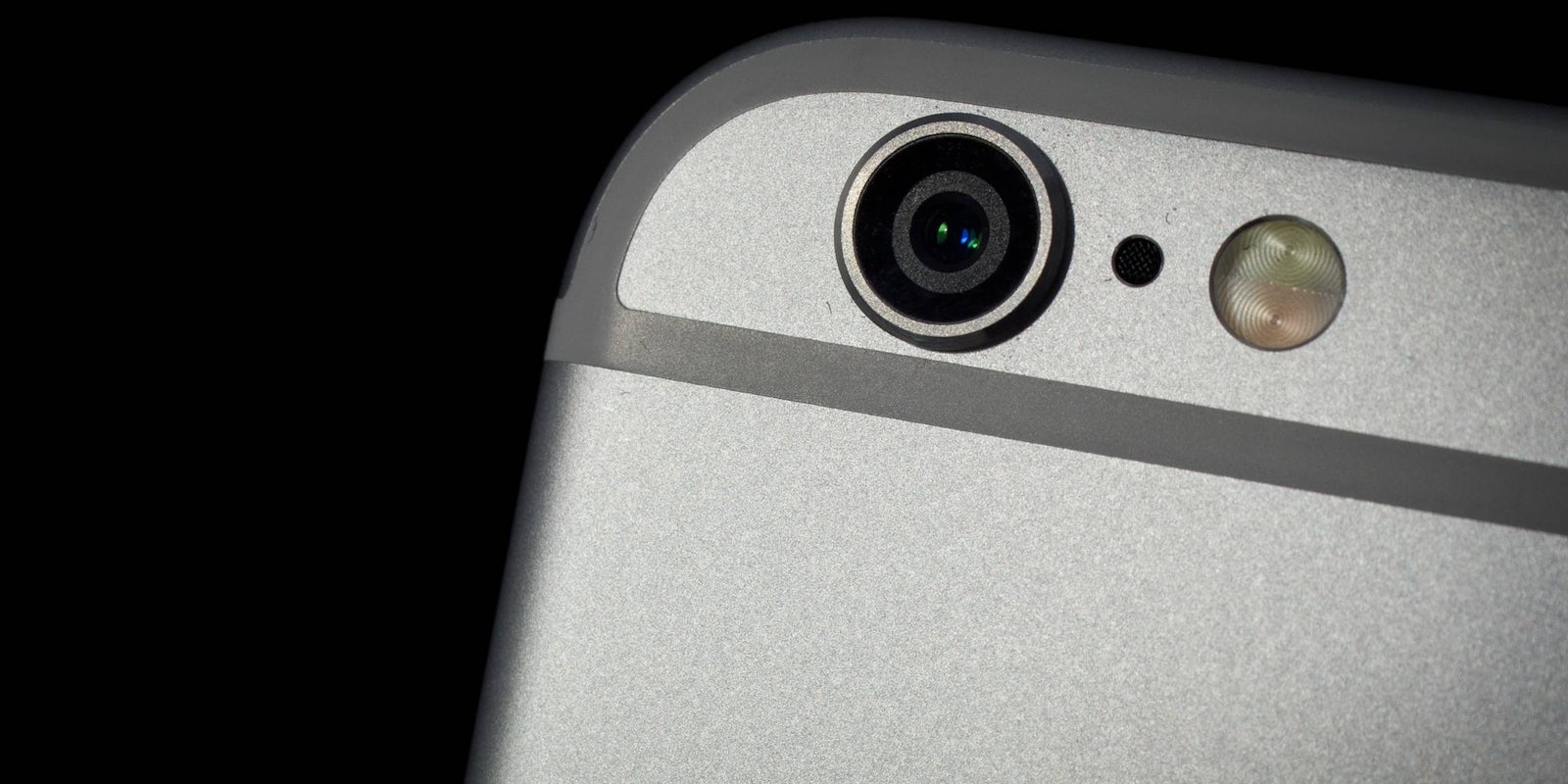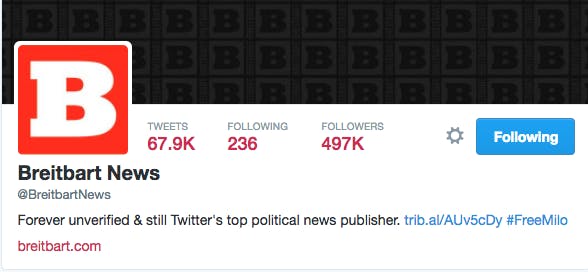Far-right news and commentary site Breitbart.com met challenges this month from Apple, Twitter, and digital advertising, in the wake of criticism that it pushes hate speech and white nationalist views.
Apple yanked Breitbart’s free app last week from its App Store. Breitbart readers tweeted their anger over the app’s departure, and accused Apple of hypocrisy:
https://twitter.com/USNCTM/status/799375787954675713
But accusations of hypocrisy by Breitbart fans due to any political leanings of Apple appear to be unfounded.
Breitbart’s nearly 3-year-old app held a two-star rating in the App store. Still remaining in the App Store are apps from Alex Jones—a conspiracy theorist who believes that 9/11 and the Boston Marathon bombing were faked—as well as conservative radio icon Rush Limbaugh. Both InfoWars and the Drudge Report far outrank Breitbart Report in App Annie’s ranking of free news apps for Nov. 4, the latest day with available data.
But Breitbart fans with Android devices are in luck; the Google Play app is still available. A paid app by a third-party developer and a free app that combine stories from Breitbart and fake news site Zero Hedge also remain in the App Store.
Facebook, Twitter, Google, and Apple are all snared in a wave of criticism that fake news and trolling may have played a decisive role in the results of the 2016 presidential election.
Digital advertising service App Nexus on Wednesday barred Breitbart from using its ad-serving tools, saying that the site breached a company policy against content that incites violence. App Nexus spokesman Joshua Zeitz told Bloomberg that company did a “human audit” of Breitbart’s articles and found enough content “that crossed the line.”
Twitter has also refused to verify Breitbart with a blue check mark, which it grants to news organizations it deems to be “of public interest.” Twitter refused to explain to the Daily Dot why it has yet to grant Breitbart verification status, citing privacy and security reasons.
Breitbart has gained mainstream media attention after President-elect Donald Trump appointed the website’s executive chairman Stephen Bannon as White House chief strategist. Bannon’s appointment met a wave of criticism from civil rights groups such as the American Civil Liberties Union, Southern Poverty Law Center, Anti-Defamation League (ADL), in addition to Sen. Harry Reid (D-Nev.).
ADL and the Southern Poverty Law Center have both described the alt-right as a label for white nationalists, anti-Semites, and racists.
Following Trump’s victory, the BBC referenced the fears of some that Breitbart will be “little more than a mouthpiece for Mr. Trump’s policies.”
Breitbart’s coverage by mainstream media outlets appeared to spark its own crisis in identity politics. The New York Times noted back in August that Breitbart was a “potent voice” for Trump’s campaign.
Breitbart fought back this week against claims that the news site was a prominent platform for white supremacists, and that Bannon used racial slurs like the N-word. According to Breitbart:
Bannon has never been accused of using that word before, nor is there any evidence that he has done so. The statement was, plainly, a lie.
Breitbart News Network Chief Executive Officer Larry Solov told Bloomberg in an emailed statement that Breitbart “has always and continues to condemn racism and bigotry in any form.”
Breitbart has criticized Apple’s App Store in the past for its guidelines on keeping what it deems “offensive” content outside the hands of iPhone owners. The App Store has rejected apps like “Build the Wall,” an iPhone game by a pro-Trump internet personality; and “Capitol HillAwry,” an iPhone game based on former Secretary of State Hillary Clinton’s Benghazi email scandal.
Apple’s online guidelines for app removal and rejection are vague—perhaps intentionally so. The tech company avoids the explicit use of terms such as “racist,” “xenophobic,” “sexist,” “homophobic,” “anti-Semitic,” and “pornographic” in determining what constitutes “offensive” content.
According to Apple’s online guidelines for app developers:
We will reject apps for any content or behavior that we believe is over the line. What line, you ask? Well, as a Supreme Court Justice once said, “I’ll know it when I see it”. And we think that you will also know it when you cross it.
The phrase “I’ll know it when I see it” was used by Supreme Court Justice Potter Stewart to describe pornography in Jacobellis v. Ohio, a landmark case on obscenity and freedom of expression. The court’s ruling held that while the Constitution protects freedom of speech, the same protections don’t apply to obscene content.
Apple will also ban apps for trying to trick the review process, steal user data, or manipulate ratings.
Apple has not yet responded to the Daily Dot’s request for comment on the reasoning behind Breitbart New’s app’s removal.



